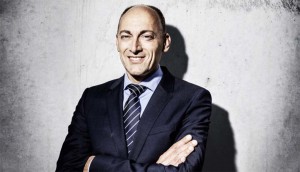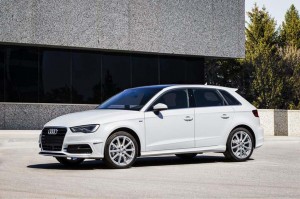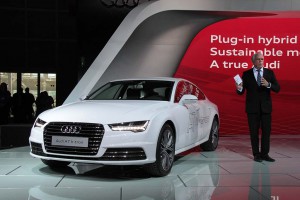The head of R&D for German luxury car brand Audi is the latest to fall as the investigation into parent Volkswagen AG’s diesel emissions scandal moves forward.
An outside investigation commissioned by VW found that Stefan Knirsch, who also served as an Audi board member, knew about efforts to rig diesel engines with a so-called “defeat device,” and then lied about the subterfuge under oath. His suspension, first reported by German newspaper Bild am Sonntag, comes about a week after a U.S.-based Volkswagen engineer became the first company official to plead guilty as part of an expanding investigation by the Justice Department.
Separately, Justice investigators have begun probing the role of some Volkswagen suppliers, notably including German partsmaker Bosch, to see if they also participated in – or were at least aware of – the emissions test-rigging efforts. Bosch, is high on that list, according to a report by the Bloomberg News Service, as one of the suppliers of emissions technology, including software.
(After pleading guilty, VW engineer helping with diesel investigation. Click Here for the story.)
The emissions scandal was touched off a year ago this month when the U.S. Environmental Protection Agency accused Volkswagen of rigging its 2.0-liter turbodiesels to cover up the fact that they produce significantly more pollutants – especially smog-causing oxides of nitrogen – than allowed by law. VW soon after acknowledged the plot and subsequently also admitted rigging its 3.0-liter diesel, as well.
In June, the automaker agreed to pay record fines to settle civil cases brought by the Justice Dept., EPA, Federal Trade Commission and the California Air Resources Board, or CARB. Of the $14.7 billion settlement, about $10 billion will go to buy back vehicles equipped with the 2.0-liter engine. Additional monies will help promote the sale of zero-emissions vehicles, and to offset the added pollution caused by VW.
But while government officials called the settlement a key step in holding corporations accountable for violating clean air laws, they also stressed that a criminal investigation would move forward. That probe led to the September 9th plea by a former engineer who acknowledged helping VW come up with the software used to conceal excess emissions. And 62-year-old James Robert Liang now plans to cooperate with the U.S. Justice Department’s ongoing criminal investigation.
Additional investigations are underway abroad, including an extensive probe in Germany where, among other officials, former Volkswagen AG CEO Martin Winterkorn is a target.
For its part, the automaker has pledged to cooperate with those ongoing efforts. It has already dismissed a number of senior officials, as well as lower-level engineers believed to have been directly involved in the effort to rig the engines. Knirsch is the latest to fall, according to the German newspaper report. He has been suspended for reportedly lying under oath.
Ironically, he last year replaced Ulrich Hackenberg, a Volkswagen board member who oversaw engineering at both VW and Audi. Hackenberg quite after being suspended, along with two other senior executives implicated in the diesel cheating.
Other executives and lower-level managers could yet be targeted as a result of the internal investigation handled by Jones Day and commissioned by VW.
While the Volkswagen brand has taken most of the heat in the cheating scandal, two other marques have been tarnished. The Audi brand used both the 2.0- and 3.0-liter turbodiesels in its various products. The Porsche brand, meanwhile, used the larger of those engines in some of its models.
Since the scandal broke in September 2015, none of those diesel models have been available on the U.S. market. VW has said it hopes to come up with a fix for the engines but has yet to win approval from either the EPA or CARB.
While VW has settled the government’s civil suit covering the smaller engine, which was used in about 475,000 vehicles sold in the States, it has yet to reach an agreement over the 3.0-liter powertrain. Since fewer vehicles were sold, the eventual penalty is also expected to be more modest.
(In wake of diesel scandal, VW reorients its U.S. operations. To find out more, Click Here.)
It remains to be seen if suppliers, such as Bosch, will ultimately be dragged into the scandal and, if so, if they also will face civil and possible criminal sanctions.
Bosch issued a statement saying that it is “cooperating with the investigations in various jurisdictions, and is defending its interests in the litigation. As a matter of policy, and due to the sensitive legal nature of these matters, Bosch will not comment further concerning matters.”
(VW takes major step to address cybersecurity concerns. Click Here for the story.)



